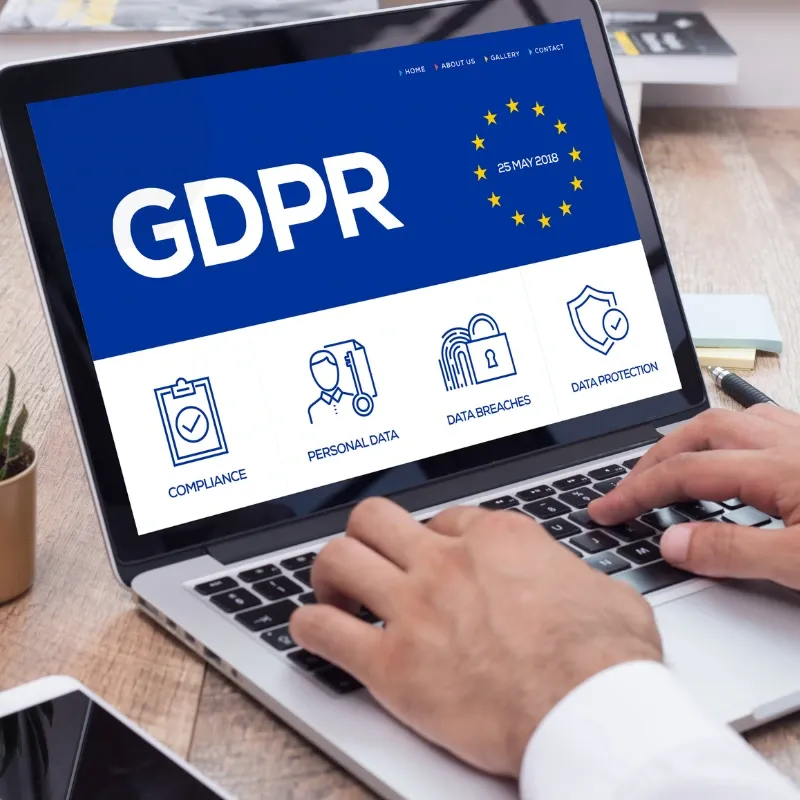Navigating GDPR in User Research with Ayda 🛡️

Decoding GDPR: Protecting privacy in research 🕵️♂️
GDPR – the General Data Protection Regulation – is a sentinel, safeguarding personal data and championing privacy, security, and data integrity. While not tailor-made for research, its realm and user research data are closely entwined, underscoring the need for researchers to master its implications.
Why GDPR matters
GDPR fortifies the guardianship of personal data, encompassing elements from names and addresses to IP addresses and beyond. While your focus may be research, the data you handle – interview recordings, notes, forms – requires meticulous care to uphold participant privacy and GDPR compliance.
Navigating the GDPR maze
Embarking on a journey through GDPR's terrain necessitates a clear compass. Let's decipher key intersections between GDPR and user research, unraveling complexities within the research realm.
- Casting a wide GDPR net 🕸️: GDPR's notion of 'personal data' casts a wide net, encompassing more than meets the eye. Your data trove might reveal more about participants than anticipated, warranting a vigilant eye on data collection and participant identification.
- The consent symphony 🎶: GDPR elevates the consent process to a symphony of clarity and comprehension. Amid the research chorus, harmonize informed consent – the cornerstone of ethical data handling.
- The paper trail anthem 📜: GDPR's watchful eye mandates robust documentation and auditing. Chart your research journey meticulously, collaborating with legal teams to compose a powerful paper trail.
Mastering GDPR compliance with Ayda
Elevating your user research to the pinnacle of GDPR compliance is a shared journey. Ayda stands as your beacon of guidance, illuminating the path to impeccable compliance. Here are Ayda's top 5 tips to navigate the GDPR galaxy:
- Clarity unveiled 🧐: Transparency is the linchpin. During participant interactions, lay the groundwork by elucidating data collection, usage, and secure storage. The beacon of clarity shines in initial recruitment through a comprehensive project information handout.
- The vault of security 🏦: Safeguarding data within fortified vaults is paramount. Store participant data in secure havens, granting access solely to authorized individuals – GDPR allies who acknowledge its significance.
- The elegance of consent 🖋️: Every note of data necessitates a consent symphony. Document consent dates and establish retention periods (typically 2 years). Bid adieu to unnecessary data gracefully.
- The identity waltz 💃: Anonymity is key, yet participant identity must be an open book. Honor participants' right to access their data and ensure meticulous labeling to avoid inadvertent disclosures.
- Seek the sage counsel 📞: The stage for GDPR excellence is set by your legal and compliance virtuosos. Tune in to their expert counsel to ensure you waltz in step with GDPR's melody.
Resources to illuminate your path
Are you eager to delve deeper into the GDPR universe? Here are some starlit resources to guide your exploration:
- What is GDPR, the EU’s new data protection law?
- Managing user research data and participant privacy
- What is personal data?
- GDPR and research – an overview for researchers
As you traverse the GDPR cosmos, remember Ayda's constant presence – a trusted companion, supporting your research endeavors while embracing impeccable GDPR compliance. 🌌✨
Get onboarded with Ayda
Book a 30 minute call with a member of our team to supercharge your user research.
You might also like...

Research Operations software specialist delivers groundbreaking solution, offering a collaborative approach to the research industry’s fraud problem.

Researchers and participants have more in common than you might expect. Discover how meeting these shared needs delivers better insights.

You’ve secured a job as the first UX researcher in a company with a strong focus on innovation and growth. As the first person conducting user experience resear...